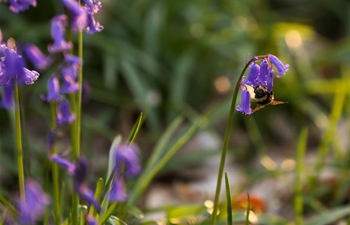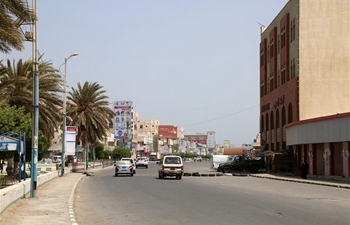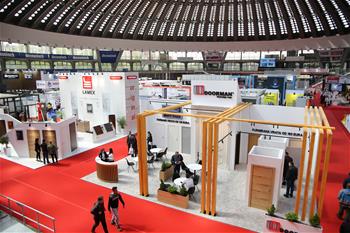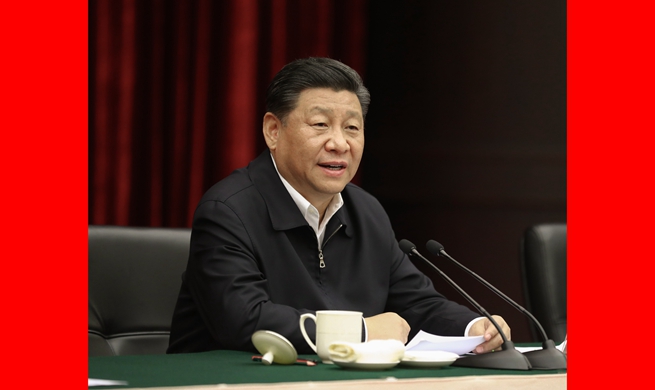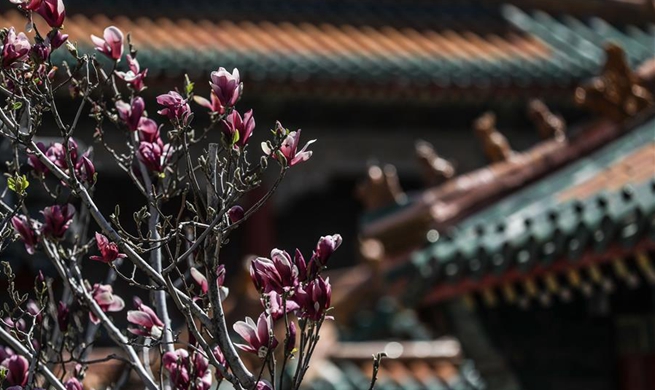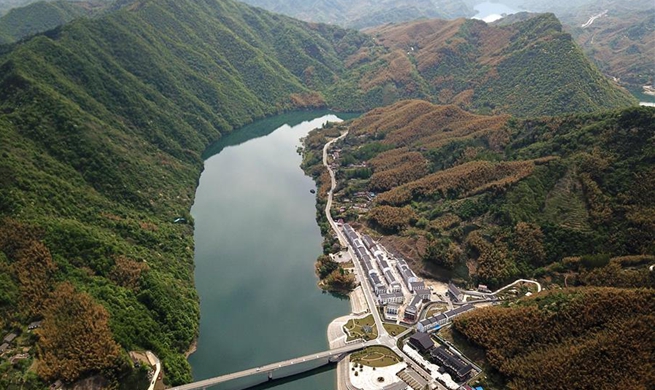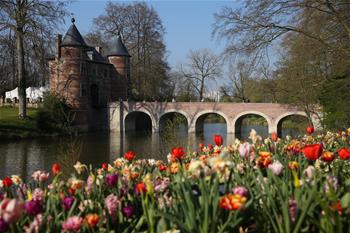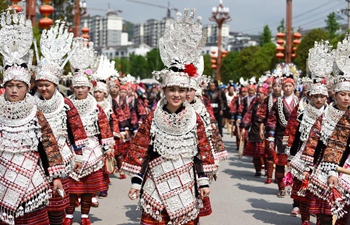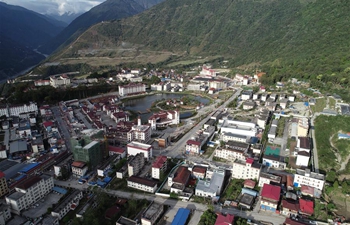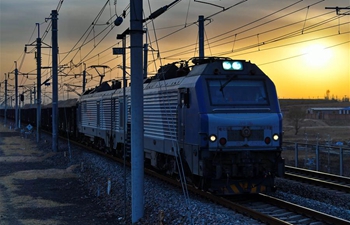by Xinhua writers Xu Feng, Xu Xingtang
WICKLIFFE, the United States, April 18 (Xinhua) -- When Angie Yu relocated from California to an obscure Kentucky county on Mississippi River in 2012, her rationale was the same as that of other fervent Chinese investors -- Asian carp were notoriously plenty in the water and a fortune was only one fishnet away.
The outcomes are different. Seven Chinese fish processing plants in several states along the Mississippi River have gone bust one by one, while the 62-year-old Chinese American has managed to make her business grow.
On Friday, an industrial park devoted to Asian carp processing, sitting on 64 acres of wooded land in the quiet Wickliffe City, Ballard County, came online. If the merits of business cluster can be trusted, her seven-year-old Two Rivers Fisheries, as the undisputed nucleus, will only be more successful.
The International Fisheries Industrial Park includes makers of fish ball, smoked fish, dry fish, fish sauce and a manufacturer who turns fish guts into organic fertilizers. Plans are afoot to invite new investment that will turn fish scales into cosmetic ingredients and fish bones into jewelry, making the industrial park waste-free.
Yu prides herself on her choice of location. As the name Two Rivers Fisheries indicates, her plant sits on the confluence of two rivers -- Mississippi and its major tributary Ohio. Unlimited supply of Asian carp and agreeable climate in middle Mississippi the whole year round have guaranteed her company's smooth operation. The failed Asian carp fisheries, either too high or too low on the Mississippi River, suffered extra woes of summer heat or winter chill.
Yu said her company's mission is "to reduce, reuse and redefine the Asian carp." Following their introduction to the United States in the 1970s for algae and waste treatment purposes, the Asian carp have multiplied rapidly and have been crowding out indigenous fish species in the Mississippi River and surrounding waters.
U.S. authorities and fish industry fear that the Asian carp's northward proliferation, if not curbed, spells disaster for the 7-billion-U.S.-dollar fish industry of the Great Lakes region.
The complicated bone structure of Asian carp, however, defies attempts to make fillets out of them. They have never truly caught on with the Americans and Asia carp processors along the Mississippi River are mainly targeting markets outside the United States.
Over the past seven years, Yu's company has harvested 10 million pounds of Asian carp out of the Mississippi River, which were sold to 11 countries. The No. 1 Asian carp exporter in Kentucky aims to process 5 million pounds this year and eyes an annual production of 20 million pounds by 2024.
Much to her dismay, Two Rivers Fisheries has not had the best luck in China, one of the world's major fish consumers. Her wild caught carp are not selling well in China despite their obvious advantage over farm-raised carp. When her fish entered the China market, they were in the frozen form, unable to impress the Chinese customers who always prefer live fish.
The situation is set to change as value-added products such as fish balls and dried fish made with the new industrial park's deep processing ability are niche market in China.
Given the enormous size of the Chinese market, U.S. fish industry can finally breathe a sigh of relief as the percentage of Asian carp in the Mississippi River will very likely go down soon. Proponents of the eat-them-to-beat-them strategy in tackling Asian carp will also feel vindicated that their faith has not been misplaced after all.
Kentucky Lieutenant Governor Jenean Hampton praised Yu and her colleagues for seeing "opportunity" when everyone else only sees "problem."
"Angie is aggressive and dedicated, she is a champion," Erran F. Persley, commissioner of Kentucky Cabinet for Economic Development, said at the launching ceremony of the industrial park, which will create another 150 full-time jobs.
"I thank you for what these new jobs will mean to so many individuals who look forward to new opportunities to work in their home county," said Senator Rand Paul in a congratulatory letter to the industrial park.
"Angie is an asset to our community," Lynn Lane and Diana Abell, Wickliffe residents, told Xinhua that locals unanimously root for Yu's success.
When asked by Xinhua to recount some of the biggest challenges in her business journey with the Asian carp in Kentucky, Yu didn't dwell on the topic. She mentioned things like the sudden and sharp discrepancy between enjoying the amenities in vibrant Los Angeles and being the first Chinese in the idyllic but unfamiliar Wickliffe. She also missed Chinese restaurants.
"I couldn't afford to quit," Yu said. She had to be strong for her husband who had serious health issues at the early years of her new Asian carp career. The number of her company's staff and local fishermen working for her was growing, and she felt a responsibility to keep the business afloat.
While her previous experience of processing discarded crab shell into chitin, a main ingredient in dietary supplement for joint strength, undoubtedly contributed to her smooth career transition, her practicality and humility play an unmistakable role in her success with the Asian carp.
When local officials expressed admiration for her ability to attract two Kentucky governors (the incumbent and his predecessor) to visit her plant -- a rare feat in Wickliffe history, and when friends jokingly gave her the moniker of "Carp Queen," her husband cautioned her against complacency, and Yu took his caveat with calm and readiness.
"We're the first Asian carp industrial park in the United States. If we succeed, our experience can be copied elsewhere on Mississippi River," she said, focusing on her business and what she's good at.
Of the 252 U.S. counties and parishes (including Ballard) in the eight-state Delta Region, 234 are "economically distressed," according to the Delta Regional Authority. If everything goes well, Yu believes her business will soon expand and a branch company will be set up in nearby Arkansas, helping the state deal with "Asia carp crisis" and create jobs at the same time.
As Yu endeavors to reuse and redefine Asian carp, she may be on the cusp of redefining the local economy.
(Xinhua reporters Xu Jing and Miao Zhuang contributed to the story)


